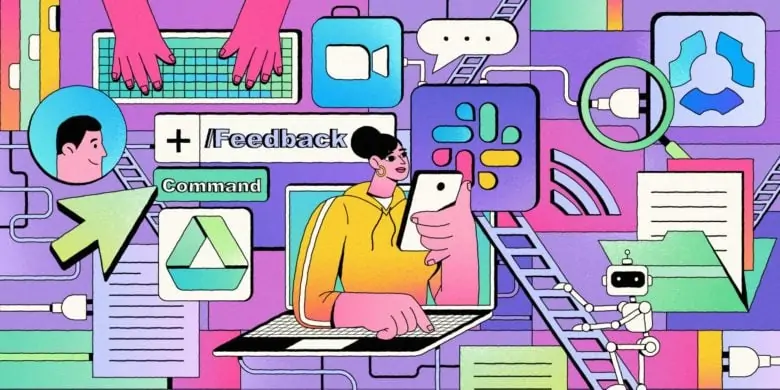We asked dozens of leaders and mental health professionals, and the conclusion is clear: You can’t afford to ignore the signs of project manager burnout.
Unfortunately, burnout is a common phenomenon. A study of 7,500 employees by Gallup found that two-thirds of the workforce experience burnout at some point. Dr. Myra Altman, VP of Clinical Care at Modern Health, claims that up to 75% of full-time employees experience “moderate to high stress levels.”
In fact, burnout is so prevalent that the WHO now recognizes it as an official disease. However, burnout is not a normal part of the job for a project manager. If your project team is burnt out, that’s a sign that something needs to change.
Recognizing the early warning signs of burnout and addressing the problem early can keep your team and your business healthy and ensure positive project outcomes.
Boost your team’s efficiency with Hubstaff's productivity tools
What is burnout?
Burnout is defined as a state of physical, mental, or emotional exhaustion due to chronic workplace stress. The symptoms can be similar to depression.
In plain language, it’s the point when your employee hits the wall. Work requires more effort, and they run out of energy much faster.
What causes burnout for project managers?
Burnout among project managers is a widespread issue, and I’ve seen it far too often in my career. The root causes are multifaceted but usually stem from a few key factors.
- Constant pressure to deliver: Project managers are often caught in the crossfire between tight deadlines, high expectations, and limited resources. This relentless pressure to produce can make it feel like you’re always sprinting to the finish line without a break, leading to chronic stress.
- Scope creep: When project requirements continuously change or expand without corresponding adjustments to timelines or resources, project managers are forced into a reactive mode. This exhausts them, as they are constantly putting out fires rather than proactively managing the project.
- Unclear objectives: When the project’s goals aren’t well-defined, project managers spend an inordinate amount of time trying to clarify direction, align stakeholders, and keep the team on the same page. This uncertainty adds another layer of stress and can lead to frustration and burnout.
As project managers, it’s crucial to recognize the signs of burnout early and take steps to mitigate it, both for your own well-being and for project success.
What are the signs of project management burnout?
Project management is a demanding job. You trust your project managers to balance a huge set of responsibilities while keeping everyone else on track.
When your project managers experience burnout, everyone suffers. They face a laundry list of potential health problems, and your business faces some hefty costs: the average burned-out employee costs their employer 34% of their annual salary.

1. A drop in performance
If you notice that a project manager is completing projects late, turning in lower-quality work, or misunderstanding requirements more frequently, that could all signal the beginning of burnout.
Problems like these are especially frustrating because they multiply.
Burnout starts to cause performance issues, and as your project manager tries to catch up, they deal with even more stress and exhaustion, which creates more problems.
That’s why it’s so vital that you offer help as early as possible. Stay alert for performance-related warning signs like these:
Poor mental function
Burnout makes it harder to think.
Project managers who are dealing with burnout often have trouble remembering everything. They may also make poor decisions and struggle with critical thinking.
Watch for signs of frustration in situations that require quick thinking or hard decisions.

Missed deadlines
What happens when your rock-solid project manager starts missing their goals?
Executive and career coach Terry B. McDougall says, “If you notice that a project manager who is usually reliable is starting to make mistakes or miss deadlines, it may be a sign that they are burning out.”
If you notice that your PM is making avoidable mistakes or giving you excuses when that’s not the norm, that’s a sign that you should offer support.
Scrambling to catch up
Falling behind due to burnout looks like this:
Your project manager no longer anticipates challenges. Instead, they spend more time reacting to issues that they’d typically spot ahead of time.
This can be a more subtle symptom.
Pay attention to the way your project manager reacts to things. They’re at risk of burnout if they’re constantly playing catch-up instead of planning ahead.
2. Exhaustion
Some people can power through for a long time before burnout affects their work performance.
Don’t wait until your project manager’s condition starts to affect your bottom line. If they’re experiencing symptoms of burnout and you encourage them to keep working at an unsustainable level, it will severely impact both their health and your business.
Be alert to signs of physical and mental exhaustion.
Sleep deprivation
One of the most striking signs of burnout is tiredness. Often, this is the result of the stress causing insomnia.
Lack of sleep can also cause irritability, difficulty concentrating, and drowsiness. It’s not just people dozing off in meetings — a team member who has trouble controlling their mood might not be sleeping well.
Poor health
Mental and physical exhaustion can damage the immune system. A burned-out project manager is more likely to call out when they’re sick. Worse, they might get sick and come to work anyway, putting the rest of the workforce’s health at risk.
“Chronic activation of the stress response leads to symptoms such as increased blood pressure and heart rate, shortness of breath or chest tightness, headache, and gastrointestinal pain,” says Dr. Myra Altman. “You might even notice that you have less of an appetite or that you are getting sick more frequently.”
Employees might not feel comfortable discussing their health concerns with you, and that’s okay. Notice if your PM starts getting sick more frequently and look for other signs of burnout.
Low motivation
Project managers experiencing the above symptoms are likely to lack passion for their work. This will be exhibited in their reduced proactivity, enthusiasm, and attendance.
It’s hard to stay engaged in your job when you feel worn out and overwhelmed, isn’t it?
An employee who used to be a top performer probably isn’t demotivated because of the type of person they are. If they’re struggling to find the energy and motivation to get the job done, they’re probably burnt out.
3. Increasingly alienated
Burnout isn’t just about how an employee acts towards you. It also affects how your project manager works with the rest of the team.
Keep an eye on the interactions between employees. Strained relationships, uncharacteristic irritability, and increased distance are all warning signs.
One obvious indicator is a negative attitude. Specifically, if the person is quicker to anger and more argumentative than usual, they’re probably dealing with burnout. This is an especially concerning problem because it affects everyone on the team.
A less obvious sign is the need to always be “on” at work. Here’s how it happens:
Your project manager can’t seem to find time for anything but work. They no longer interact with people socially, and their poor attitude increases their alienation. They throw themselves even more strenuously into their work to make up for it, and the cycle worsens.
Ty Stewart, CEO and president of Simple Life Insure, says: “You may start to notice the PM seems to answer emails and Slack messages at all hours, from 6 AM till 11 p.m. That’s fine if a project is in crunch time, but unhealthy when it’s evergreen.”
How to fight burnout
Now that you understand how burnout can affect your project managers and your business, it is time to implement workplace policies to ease the situation.
With the help of mental health professionals and successful business leaders, we recommend five steps to fight project manager burnout.
Step 1: Schedule regular well-being meetings
The best way to catch burnout early is to talk with your project manager regularly, not just about their job.
Schedule well-being meetings with all of your team members. Focus the discussion on mental and physical health, not work. Provide resources to mental health resources that can help with employee burnout.
Project managers are used to meetings, but this one should differ from the rest. Do not discuss project work, except to understand if they are happy with their workload or not.
For these meetings to be effective, you must establish a company culture of open and honest communication.
At first, you’ll need to guide the conversation carefully and build trust to get honest feedback. Over time, you and your team members will become more comfortable and get better at having these open conversations.

“The key is not to criticize the employee,” explains Susana Branum, inbound marketing manager at RFP360, “but to work together to discuss the symptom of burnout and address the actual cause.”
Step 2: Promote self-care
Everyone should take responsibility for their own mental health. As the employer, you can help your team learn how to improve their self-care routines and create the right conditions for them to look after themselves.
That might mean offering a wellness program, or you may need to take more direct action.
For example, if the burnout is severe enough, Mollie Newton, founder of Pet Me Twice, suggests giving your project manager some time off. “The one thing your project manager needs is rest, and that’s exactly what you should give by letting them take the day off. Your business will survive for a day, trust me.”
They should use that time to reset their work-life balance. Get some good sleep, exercise, eat healthier, and do things they enjoy with people they love.
Michael Levitt, founder & Chief Burnout Officer of The Breakfast Leadership Network, suggests project managers use their work calendars to their advantage.
He advises PMs to create a list of the things they enjoy. They should then schedule two or three items in their work calendar and prioritize them as high as a meeting with their superior. Make sure that the time is blocked off on the shared calendar so that co-workers don’t try to interrupt.
In the long term, your project managers should form habits to do these things frequently. You can also help by sending occasional company notices with recommended diet plans or exercise routines.
Step 3: Review and revise goals
When Susana Branum suffered burnout, she sat down with her manager to discuss her excessive workload.
“We worked together to reassign some responsibilities to other project teams temporarily. My manager also took it a step further and reset expectations with senior leadership.”
Revisiting goals often will allow you to catch concerns before they become a problem. It is better to reassign a task than to miss project milestones.
Be careful of your project managers telling you what they think you want to hear. Push them to be as honest as possible by asking probing questions. Explain that reassigning some work won’t reflect negatively on them, and remind them how much you appreciate the (reasonable amount of) work they do.
Step 4: Enforce boundaries
Most project managers work long days because of the high demands of the job. A small subset also work overtime or avoid using their vacation time simply because they think the business expects this of them.
Both approaches lead to burnout.
Ty Stewart recommends protecting staff by discouraging overtime or forbidding it altogether.
“You may want to set firm expectations that no team member is allowed to send or respond to messages after 7 PM unless it’s for an absolute emergency.”
Similarly, make it a policy that any worker who comes into the office sick must go home. Vacation days not used or scheduled by a specific date can be scheduled automatically.
Often, a project manager experiencing burnout hesitates to take time off because they’ll have to put in extra work to catch up when they come back. Spending your days off worrying about everything that isn’t getting done is not exactly relaxing.
Help your team relax by ensuring their work is covered while out of office.
Step 5: Bring in professionals
As we have mentioned, burnout is an officially recognized disease. You don’t have to manage it alone; nobody on your team should have to, either.
Instead, create an internal team of well-being professionals to design policies to fight stress and burnout. This is especially useful for large organizations.
Alternatively, bring in outside help. Shelley Gawith, a functional nutritional specialist, recommends having “a wellness person come in and talk to your PMs. There are simple things they could be doing in their daily routine that they can implement that would bring down their stress load on their bodies while improving productivity.”
Streamline project management to reduce stress
In summary, proactive, preventative measures are the best way to tackle burnout. It is essential to:
- Know the symptoms and educate employees.
- Encourage a culture of honest communication and one where it is not taboo to prioritize one’s health and personal life.
- Create the conditions for your project managers to enact self-care measures.
The other way to reduce stress in your project managers is to streamline their duties as much as possible.
Using the right tools to streamline workforce management, such as Hubstaff, and enacting the latest productivity guidance and management advice, your project managers can eliminate repetitive or inefficient tasks and optimize their working day. And when your project managers are productive, so is the rest of your workforce.

For more advice on strategies to improve workplace productivity, subscribe to our blog.
Get updates automatically
New articles and advice in your inbox every month.
In the meantime, here are some other resources you might find useful:
Most popular
The Fundamentals of Employee Goal Setting
Employee goal setting is crucial for reaching broader business goals, but a lot of us struggle to know where to start. American...
Data-Driven Productivity with Hubstaff Insights: Webinar Recap
In our recent webinar, the product team provided a deep overview of the Hubstaff Insights add-on, a powerful productivity measurem...
The Critical Role of Employee Monitoring and Workplace Security
Why do we need employee monitoring and workplace security? Companies had to adapt fast when the world shifted to remote work...
15 Ways to Use AI in the Workforce
Whether through AI-powered project management, strategic planning, or simply automating simple admin work, we’ve seen a dramatic...




